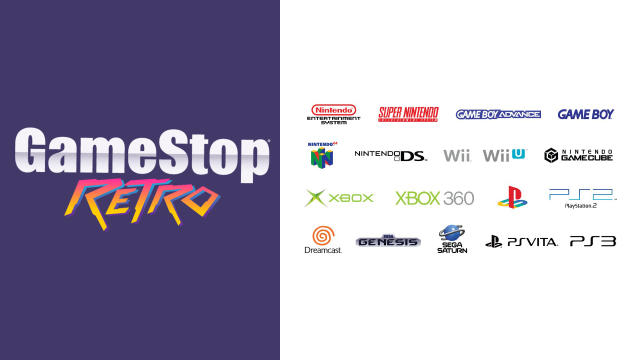GameStop has unveiled a new initiative that has gamers buzzing with excitement: GameStop Retro. These stores, which are either new locations or retrofitted sections within existing GameStop stores, are dedicated to selling retro games and consoles. As the retro gaming market continues to grow, GameStop is strategically positioning itself as a leader in this space by leveraging its vast network and expertise in pre-owned game sales.
What is GameStop Retro?
GameStop Retro is GameStop’s latest venture aimed at capturing the hearts of retro gaming enthusiasts. These stores offer a wide range of classic video games and consoles, including but not limited to:
- Nintendo Consoles: NES, SNES, Game Boy, Game Boy Advance, N64, GameCube, Wii, and Wii U
- PlayStation Consoles: PS1, PS2, PS3, and PS Vita
- Xbox Consoles: Xbox and Xbox 360
- Sega Consoles: Genesis, Saturn, and Dreamcast
Oddly, while PS Vita games are available, the PlayStation Portable (PSP) is notably absent from the advertised offerings. This could be due to stock limitations or strategic decisions about what to include in the initial rollout.
Why is GameStop Retro Important?
The launch of GameStop Retro is significant for several reasons:

1. Tapping into Nostalgia
Nostalgia is a powerful force, especially in the gaming community. Many gamers who grew up with these classic consoles now have disposable income and a desire to relive their childhood memories. GameStop Retro provides an easy way for these individuals to purchase and experience classic games and hardware without scouring eBay or other online marketplaces.
2. Leveraging Existing Strengths
GameStop has a well-established infrastructure for pre-owned game sales and trade-ins. By incorporating retro gaming into its business model, GameStop can leverage its expertise in game authentication and refurbishment, ensuring that customers receive quality products they can trust. This move also allows GameStop to diversify its revenue streams, which is crucial in the ever-evolving gaming market.
3. Creating Community
GameStop Retro is not just about buying and selling games; it’s about fostering a sense of community. Many GameStop Retro locations will host events and tournaments centered around retro games, providing opportunities for gamers to connect, compete, and reminisce about their favorite childhood titles.
Challenges and Concerns
While the excitement around GameStop Retro is palpable, there are several challenges that the initiative will need to overcome:
1. Pricing
One of the primary concerns among retro gamers is pricing. Historically, GameStop’s pricing for pre-owned games has been higher than other retailers or online marketplaces like eBay. This could deter some customers from purchasing retro games and consoles at GameStop Retro locations, especially if more affordable options are available elsewhere.
2. Inventory and Availability
Sourcing and refurbishing retro consoles and games is no small feat. The availability of popular titles and consoles may fluctuate, which could frustrate potential customers. Additionally, the absence of certain platforms, like the PSP, may disappoint some retro gaming enthusiasts.
The Future of GameStop Retro
The early reception of GameStop Retro has been positive, and the company has indicated plans to expand the concept to more locations across the United States. If successful, GameStop Retro could become a core component of the company’s business strategy, helping to revitalize its brand and attract a new generation of gamers who appreciate the timeless appeal of classic games.
Looking ahead, GameStop is exploring ways to enhance the retro gaming experience. This could include offering retro-themed merchandise, educational displays on gaming history, and interactive kiosks that allow customers to try out classic games before purchasing. These additional features could make GameStop Retro not just a store, but a destination for gamers of all ages.
Conclusion
GameStop Retro represents a bold and innovative move in the gaming retail space. By tapping into the growing retro gaming market and leveraging its existing strengths, GameStop is positioning itself as a curator of gaming history. Whether you’re a seasoned gamer looking to relive your childhood or a newcomer curious about the roots of modern gaming, GameStop Retro offers something for everyone.
As this initiative continues to roll out, it will be interesting to see how it evolves and whether it can meet the high expectations of the gaming community. For now, GameStop Retro is a promising new chapter in the company’s ongoing efforts to stay relevant in an increasingly digital world.










